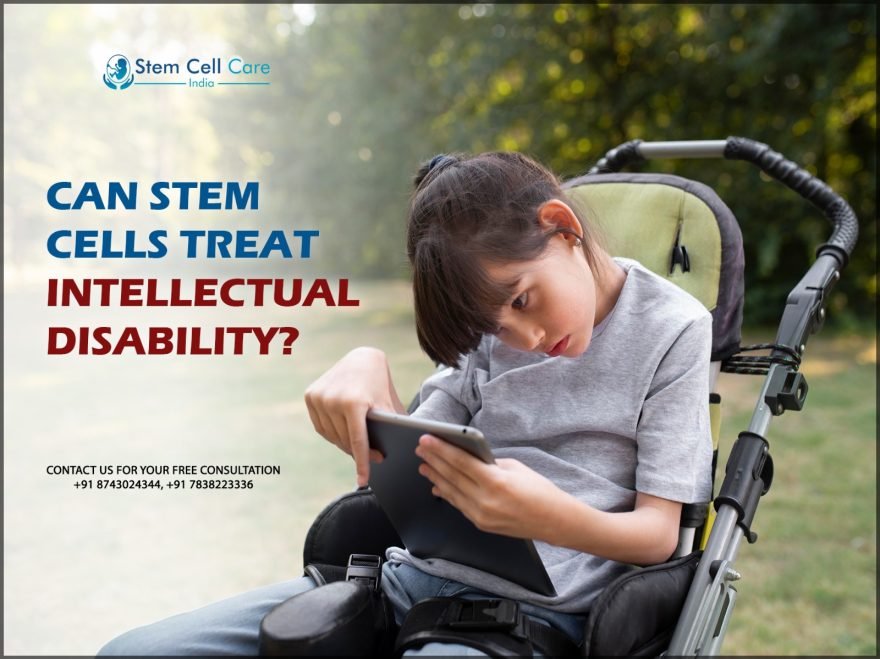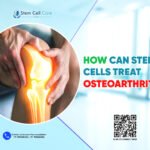Table of Contents
Intellectual disability (ID), characterized by significant limitations in both intellectual functioning and adaptive behavior, affects millions worldwide. This condition, often evident before the age of 18, results in challenges in everyday social and practical skills. While there are a number of causes, including genetic conditions, prenatal factors, and environmental influences, the search for effective treatments remains ongoing. One promising avenue of research is stem cell treatment. In this blog, we will find out whether stem cells can treat intellectual disability, the current state of research, and the potential future of this innovative approach.
Understanding Intellectual Disability
Intellectual disability is a complex and multifaceted condition that can stem from various genetic, developmental, and environmental factors. Common causes include:
Genetic Disorders: Conditions like Down syndrome, Fragile X syndrome, and Rett syndrome are associated with intellectual disability.
Prenatal Influences: Exposure to alcohol, drugs, or infections during pregnancy can lead to developmental issues.
Perinatal Factors: Complications during birth, such as oxygen deprivation, can result in brain damage and intellectual disability.
Postnatal Factors: Early childhood illnesses, malnutrition, and environmental toxins can contribute to cognitive impairments.
The severity of intellectual disability varies widely, and it can impact various aspects of life, including communication, self-care, and learning abilities. Traditional treatments often focus on behavioral interventions, special education, and supportive therapies. However, these approaches primarily manage symptoms rather than address the underlying causes.
The Potential of Stem Cell Therapy
Stem cell therapy represents a groundbreaking frontier in the treatment of various medical conditions, including those affecting the brain and nervous system. Stem cells have the unique ability to differentiate into various cell types, offering the potential to repair or replace damaged tissues. Here’s how stem cell therapy could theoretically benefit individuals with intellectual disability:
- Regeneration of Damaged Neural Tissues:
Many forms of intellectual disability involve damage or abnormalities in brain structure and function. Stem cells could potentially repair or regenerate these damaged neural tissues, improving cognitive function.
- Replacement of Defective Cells:
In genetic conditions like Rett syndrome or Fragile X syndrome, specific types of neurons or glial cells may be defective. Stem cell therapy could replace these defective cells with healthy ones, potentially mitigating the effects of the condition.
- Modulation of Inflammation:
Inflammation in the brain can contribute to neurodevelopmental disorders. Certain types of stem cells, such as mesenchymal stem cells (MSCs), have anti-inflammatory properties that could help reduce brain inflammation and protect neural tissues.
- Enhancing Neuroplasticity:
Neuroplasticity, the brain’s ability to reorganize itself by forming new neural connections, is crucial for learning and cognitive function. Stem cells might enhance neuroplasticity, aiding in cognitive development and recovery.
Current State of Research
While the theoretical potential of stem cell therapy for intellectual disability is compelling, research in this area is still in its early stages. Several studies and clinical trials are exploring the feasibility, safety, and efficacy of stem cell treatments for neurodevelopmental disorders:
- Preclinical Studies:
Animal models have been used to study the effects of stem cell therapy on brain function and behavior. For instance, research on mice with Down syndrome has shown that stem cell therapy can improve cognitive function and reduce brain abnormalities.
- Clinical Trials:
A limited number of clinical trials have investigated the use of stem cells in treating intellectual disability. These trials focus on various aspects, such as safety, dosage, and preliminary efficacy. For example, some studies are exploring the use of umbilical cord blood stem cells in children with cerebral palsy, a condition that often involves intellectual disability.
- Genetic Conditions:
Research on specific genetic disorders like Rett syndrome and Fragile X syndrome is ongoing. These studies aim to understand how stem cells can address the unique challenges posed by these conditions, potentially offering targeted therapies.
The Future of Stem Cell Therapy for Intellectual Disability
The future of stem cell therapy for intellectual disability holds significant promise but requires continued research and development. Advances in stem cell biology, genetic engineering, and regenerative medicine are likely to pave the way for more effective and targeted treatments. Key areas of focus for future research include:
- Understanding Mechanisms:
Further research is needed to elucidate the mechanisms by which stem cells exert their therapeutic effects. This knowledge will inform the development of more precise and effective treatments.
- Enhancing Delivery Methods:
Innovative delivery methods, such as targeted injections and scaffold-based approaches, are being explored to improve the efficacy and safety of stem cell therapy.
- Integrating Therapies:
Combining stem cell therapy with other treatments, such as gene therapy and pharmacological interventions, may enhance outcomes and provide comprehensive solutions for intellectual disability.
- Personalized Medicine:
Advances in personalized medicine, including the use of patient-specific iPSCs, offer the potential for tailored treatments that address the unique needs of each individual.
Conclusion
While stem cell therapy for intellectual disability is still in its nascent stages, the potential benefits are substantial. The ability to repair damaged neural tissues, replace defective cells, modulate inflammation, and enhance neuroplasticity offers a hopeful avenue for addressing the root causes of intellectual disability. Continued research, ethical considerations, and clinical trials will be crucial in transforming this promise into reality. As our understanding of stem cells and their therapeutic potential deepens, we move closer to offering effective treatments that can significantly improve the lives of individuals with intellectual disability and their families. Stem Cell Care India (SCCI) is one of the best healthcare consultants in Delhi which can help you to find the best treatment at the best place at affordable prices.







